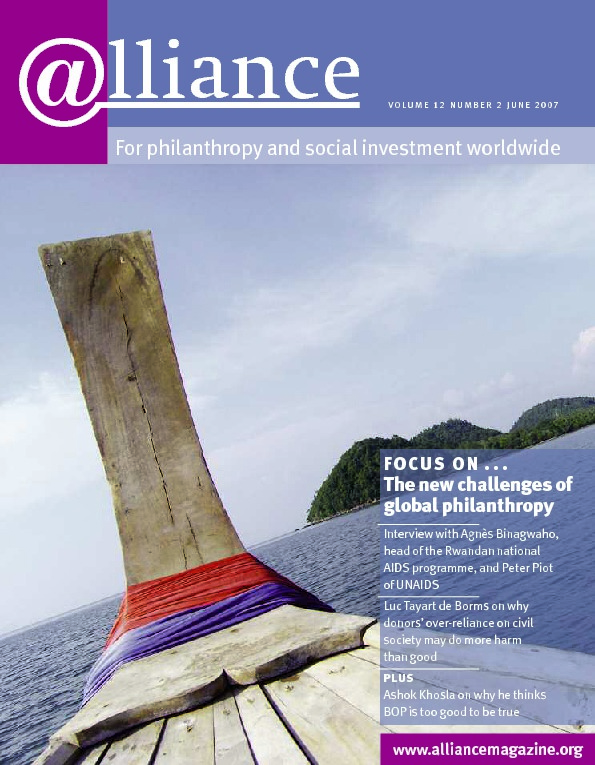The March edition of Alliance focused attention on the idea of philanthrocapitalism.
To the extent that philanthrocapitalism represents a model of investing private capital for public purposes, and is sensitive to the system of global capitalism in which it operates, it offers a potentially powerful and effective avenue to achieve those purposes.
But for Matthew Bishop to claim that this avenue represents philanthropy in its most advanced (as well as newest) form is unconvincing. Not only would this accept the controversial conception that philanthropy is defined (and, as Marxists would see it, damned) by its relation to capitalism; it is also, as Bruce Sievers observes, unhistorical.
Furthermore, the concept of philanthrocapitalism is in danger of distorting the meaning of philanthropy. The definition of philanthropy, as I understand it, is ‘the love of humanity’. Clearly those that regard charitable giving as a series of investments yielding concrete results and measurable change can be making important expressions of philanthropy – but not always and not necessarily. A broader definition of philanthropy that embraces motivation and other aspects such as volunteering is required. As Sievers points out, philanthropy is a nuanced and multifaceted idea and the social reality that it affects is complex.
A broader definition of philanthropy along these lines is therefore a far more exacting standard of what it means to be a true philanthropist – and I’m not sure that there are many of them.
In this respect, the recent edition of Alliance exploring ‘light and shadow’ in philanthropy is so interesting because it provides a commentary of its own on the emerging debate between advocates and critics of the new ‘philanthropy’.
Charles Keidan
Director, The Pears Foundation





Comments (0)